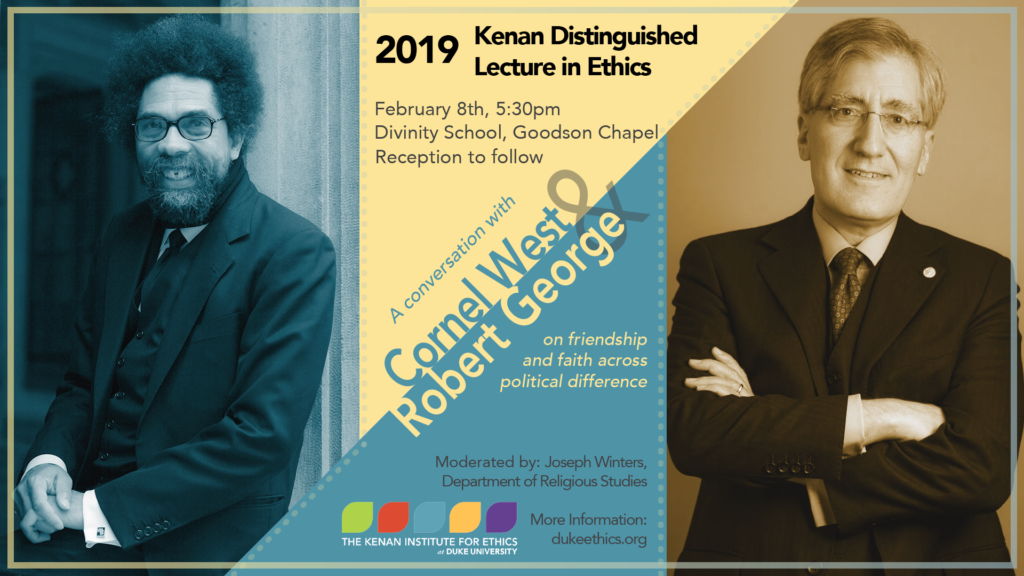
We lead with our values because it’s easier to connect with somebody who shares our priorities, but it’s a trickier proposition for companies that want our loyalty because we have rarely been so divided about what is important to us.
Deepening divisions over our common commitments make Apple’s roll-out of a suite of new services this week both riveting—and potentially fraught.
As the company’s newly announced services like AppleTV+ and AppleNews+ tie themselves more closely to Hollywood and the cover stories that sell glossy magazines, is Apple cloaking itself in values that could alienate or confuse many of the customers it aims to bond with more closely?
In 1997, on the eve of launching a new, national advertising campaign, Steve Jobs gave a short talk about the link between Apple’s values and its customers. “At our core, we believe in making the world a better place,” he said. So our ads will “honor people who have changed the world for the better—[because] if they ever used a computer, it would be a Mac.” In its marketing, Apple aligned itself with tech innovators like Thomas Edison, a genius who had already changed the world as Jobs and Apple were about to do.
A little more than 20 years later, with Apple following in the footsteps of Edison’s light-bulb company to industry dominance, the question is whether it would have a better chance of preserving that dominance by once again aligning itself with technology innovators who have already changed the world instead of those, like Steven Spielberg and Oprah Winfrey, who aim to do so by relying on their own approaches to social betterment? To set the stage for your possible reactions, here is a link, beginning with Spielberg and ending with Winfrey, that covers the highlights from Apple’s new services launch this past week in a vivid, all-over-the-place 15 minutes.
I should confess that I have a bit of a horse in this race because I want Apple to keep winning by bringing me world-class products and customer care, but I’m not sure that it can by pursuing services (like entertainment, news and games through the new AppleArcade) that put the company in lockstep with industries that muddy its focus and dilute its values proposition.
Instead of bringing me a global version of Oprah’s book club or more of Steven Speilberg’s progressive reminiscences, I was hoping to hear that Apple would be providing—even in stages over months or years—an elegantly conceived and designed piece of technology that would (1) allow me to cut the cable cord with my internet provider while (2) upgrading me to an interface where I could see and pay for whatever visual programming I choose whenever I want it. An ApplePay-enabled entertainment router. Now that would be the kind of tech innovation that would change my world for the better again (and maybe yours too) while staying true to its founder’s messaging from twenty-odd years ago.
Tech commentator Christopher Mims talked this week about why Apple was claiming values (like those embedded in Oprah’s notion of social responsibility) to maintain its market share, but he never really debated whether it should do so. I’d argue that Apple should continue to make its own case for the social benefits of its tech solutions instead of mixing its message about priorities with the aspirations of our celebrity culture.
When it comes to Silicon Valley’s mostly hypocritcal claims about social responsibility, I start with the skepticism of observers like Anand Giridharadas. To him, Facebook, Google, Amazon and Apple all use values as tools to gain the profits they’re after, covering their self-serving agendas with feel-good marketing.
In a post last October, I discussed some of his observations about Facebook (and by implication, most of the others) in the context of his recent book, Winners Take All.
The problem, said Giridharadas, is that while these companies are always taking credit for the efficiencies and other benefits they have brought, they take no responsibility whatsoever for the harms… In their exercise of corporate social responsibility, there is a mismatch between the solutions that the tech entrepreneurs can and want to bring and the problems we have that need to be solved. “Tending to the public welfare is not an efficiency problem, The work of governing a society is tending to everybody. It’s figuring out universal rules and norms and programs that express the value of the whole and take care of the common welfare.” By contrast, the tech industry sees the world more narrowly. For example, the fake news controversy lead Facebook not to a comprehensive solution for providing reliable information but to what Giridharadas calls “the Trying-to-Solve-the-Problem-with-the-Tools-that-Caused-It” quandary.
In the face of judgments like his, I’d argue that Apple should be vetting its corporate messaging with the inside guidance of those who understand the power of values before it squanders the high ground it still holds.
Beyond “sticking with the tech innovations that it’s good at” and the Edison-type analogies that add to their luster, what follows are three proposals for how the company might build on its values-based loyalty while still looking us in the eye when it does so.
Each one has Apple talking about what its tech-appreciating customers still care about most when they think—with healthy nostalgia—about all the things that Apple has done for them already.

1. Apple should keep reminding us about its unparalleled customer service
The unbelievable service I have come to expect from Apple feeds my brand loyalty. I feel that we share the value of trustworthiness. When someone relies on me for something, I stand behind it instead of telling them I don’t have the time or it’s too expensive to fix. For me, Apple has consistently done the same.
So I was surprised when I had to argue a bit harder than I thought was necessary for Apple’s battery fix for an older iPhone, and I started following other customer complaints against the company to see if a change of priorities was in the air. Since I’m writing to you on a MacBook Air, problems with the Air’s later generation keyboards have apparently escalated to the point that national class-action litigation is in the offing. Not unlike the iPhone battery fix, Apple has gone on record as being willing to replace any sticky keyboard for free within 4 years of purchase, but is it really as easy as it sounds? As recently as last week, there was this plea to Apple from a tech reviewer in a national newspaper after profiling a litany of customer difficulties:
For any Apple engineers and executives reading: This is the experience you’re providing customers who shell out $1200 or more—sometimes a lot more. This is the experience after THREE attempts at this keyboard design.
When you are one of the richest companies in history, relatively inexpensive problems like this need to be solved before they get this far. A reputation for world-class customer service is a terrible thing to waste. Be glad to fix your technology on those rare occasions when it breaks down, and solve the technology problem with these keyboards before you sell or replace any more of them. Don’t make customers who were loyal enough to pay a premium for an Apple device take you to court because they can’t get enough of your attention any other way. Caring for your customers is a core value that needs polishing before its shine begins to fade and your customer loyalty slips away.
2. Apple should keep telling us how much it’s different from Google, Facebook and Amazon
The uses that the dominant tech platforms are making of our personal data are on everyone’s mind.
Beyond invasions of privacy, deep concerns are also being voiced about the impact of “surveillance capitalism” on Western democracy, not only because of meddling with our elections but, even more fundamentally, because of how this new economic model disrupts “the organic reciprocities involving employment and consumption” that undergird democratic market systems. These are profound and increasingly wide-spread concerns, and Apple for one seems to share them.
This is from another post last October called “Looking Out For the Human Side of Technology”:
I was also struck this week by Apple CEO Tim Cook’s explosive testimony at a privacy conference organized by the European Union…:
‘Our own information—from the everyday to the deeply personal—is being weaponized against us with military efficiency. Today, that trade has exploded into a data-industrial complex.
These scraps of data, each one harmless enough on its own, are carefully assembled, synthesized, traded, and sold. This is surveillance. And these stockpiles of personal data serve only to enrich the companies that collect them. This should make us very uncomfortable.
Technology is and must always be rooted in the faith people have in it. We also recognize not everyone sees it that way—in a way, the desire to put profits over privacy is nothing new.’
‘Weaponized’ technology delivered with ‘military efficiency.’ ‘A data-industrial complex.’ One of the benefits of competition is that rivals call you out, while directing unwanted attention away from themselves…so Cook’s (and Apple’s) motives here have more than a dollop of competitive self-interest where [companies like] Google and Facebook are concerned. On the other hand, Apple is properly credited with limiting the data it makes available to third parties and rendering the data it does provide anonymous. There is a bit more to the story, however.
If data privacy were as paramount to Apple as it sounded this week, it would be impossible to reconcile Apple’s receiving more than $5 billion a year from Google to make it the default search engine on all Apple devices.
In its star-studded launch of TV, News and Arcade services this week, Apple’s presenters always reiterated that none of these services would be “ad selling models” targeting Apple users. They’re good reminders about Apple’s values but…while $5B is a lot of revenue to forsake if new purchasers of Apple devices got to pick their own search engines, it’s also a significant amount of support for an antithetical business model.
Not selling my data to others for use against me, like Apple’s standing behind the functionality of my devices, are core contributors to the company’s good reputation in my mind, and never more so than today. If Apple continues to differentiate itself from its competitors on the use of our data—and I think that it should—it needs to find ways to be more forthright about its own conflicts of interest while doing so.
When you stand on your values and back it up with your actions, the competitors you are challenging will always seek to undermine you when your actions are inconsistent with your words. Why let that inconsistency be tomorrow’s headline, Tim? Why not be ready to talk more forthrightly about the quandary with Google, and how the company is trying to address it, when asked to comment before a “gotcha” story like this gets published?
3. Apple should get ahead of its new services launch by proactively addressing likely problems with real consequences for the rest of us
In its roll-out presentation, Apple announced plans for a new service that will link players to games that Apple will be creating. Few tech areas have seen more startling impacts from the use of behavioral data that’s being gathered from players by those who are behind these on-line games. I recently talked here about how the programmers and monitors behind Fortnite and the updated Tetris games are using data about how players react to as many as 200 “persuasive design elements” in these games to enhance the intensity of the player experience while making it more addictive to boys and other susceptible populations.
Apple’s engineers know about these issues already. Its programmers are making its new games ready for primetime as soon as next fall. To differentiate itself from others in the on-line gaming industry, to strike a more principled note than its competitors have, and to broaden the scope of Apple’s values when it comes to personal data, the company could tell us some or all of the following in the coming months:
-whether it will be using behavioral data it generates from players through real time play to make its games more absorbing or addictive;
-whether it intends to restrict certain classes of users (like pre-teen boys) from playing certain games or restrict the hours that they can play them;
-what other safeguards it will be implementing to limit the amount of “player attention” that these games will be capturing;
-whether it will be selling game-related merchandise in the Apple store so its financial incentives to encourage extensive game-playing are clear from the outset; and
-whether it will be using data about player behavior to encourage improved learning, collaborative problem-solving, community building and other so-called “pro-social” skills in any of the games it will be offering.
I have no reason to doubt that Apple is serious about protecting the user data that its devices and services generate. Its new venture into gaming provides an opportunity to build on Apple’s reputation for safeguarding the use of its customers’ information. Tim Cook and Apple need to be talking to the rest of us, both now and next fall, about how it will be applying its data-related values to problems its customers care about today in the brave new world of on-line gaming.
+ + +
Apple’s stated values will hold its current customers and attract new ones when there is “a match” between the company’s solutions and the problems the rest of us have that need solving. Affiliation and loyalty grow when there are shared priorities in communities, in politics and in the marketplace.
That means Apple should keep talking about what its tech-appreciating customers care about most in the light of the wonders that Apple has given us already. Despite its recently announced forays into entertainment, the company should never take its eye too far from what it does best—which is to make world-changing devices—even when they take more time to develop than short-term financial performance seems to demand.
When a company knows what it is and acts accordingly, it can always take risks for the rewards that can come from wearing its values on its sleeves.
This post was adapted from my March 31, 2019 newsletter. You can subscribe (to the right) and receive it in your inbox every Sunday morning.










